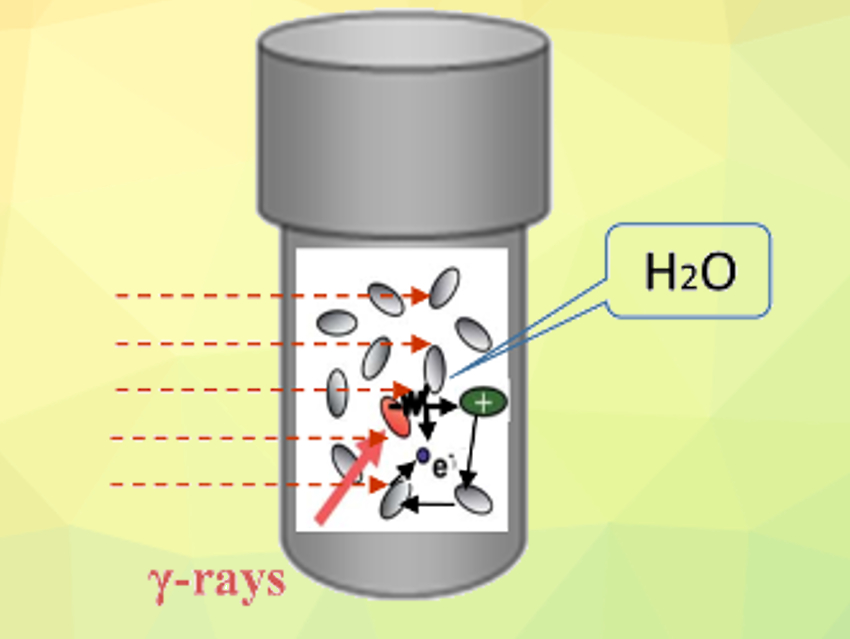Zeolites are microporous aluminosilicates that are widely used as catalysts in the petrochemical industry. They are also known as “molecular sieves” due to their ability to selectively trap molecules of a certain size. They are typically synthesized under hydrothermal conditions. However, this synthetic approach takes a long time due to a complex crystallization mechanism. The fast synthesis of zeolites has remained a challenge so far.
Xinqing Chen, Shanghai Advanced Research Institute, China, and University of the Chinese Academy of Sciences, Beijing, Mouhua Wang, Shanghai Institute of Applied Physics, China, Yuhan Sun, Shanghai Advanced Research Institute, ShanghaiTech University, and University of the Chinese Academy of Sciences, and colleagues have used γ-ray irradiation to speed up zeolite synthesis. The researchers found that γ-rays can greatly accelerate the crystallization process for zeolites such as NaA, NaY, Silicalite-1, and ZSM-5.
In the case of NaA zeolite, the crystallization time could be decreased to 18 h under γ-ray irradiation at 20 °C, while a conventional process without γ-ray irradiation took over 102 h. According to the researchers, hydroxyl free radicals (OH*) are generated by the γ‐rays from the water in the reaction vessel. These radicals accelerate the nucleation of the zeolite by lowering the energy barriers of the involved processes. The higher the intensity of γ‐ray irradiation, the faster the crystal growth. This method could, thus, facilitate the rapid synthesis of various zeolites.
- Gamma-Ray Irradiation to Accelerate Crystallization of Mesoporous Zeolites,
Xinqing Chen, Minghuang Qiu, Shenggang Li, Chengguang Yang, Lei Shi, Shiju Zhou, Gan Yu, Lixia Ge, Xing Yu, Ziyu Liu, Nannan Sun, Kun Zhang, Hui Wang, Mouhua Wang, Liangshu Zhong, Yuhan Sun,
Angew. Chem. Int. Ed. 2020.
https://doi.org/10.1002/anie.202002886




